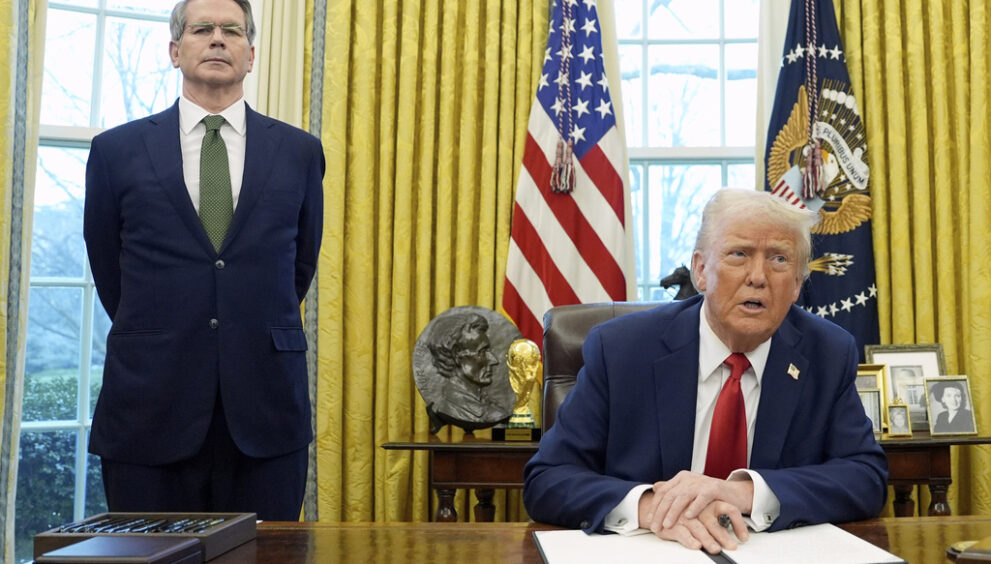Trump’s Call for Action Against Criminal Networks: Implementing New Sanctions Strategy

In a recent address to Congress, President Trump announced the designation of [Tren de Aragua], MS-13, and Mexican drug cartels as foreign terrorist organizations. This move, along with an executive order to target international drug cartels as such, signals a shift towards financial warfare against these criminal entities.
Identifying the first six cartels for designation, with four being based in Mexico, and intensifying sanctions against Iran through a National Security Presidential Memorandum, showcases the administration’s reliance on economic measures to confront adversaries.
To effectively disrupt criminal and terrorist networks, including cartels, rogue regimes, and terror sponsors, the U.S. aims to utilize financial warfare. While the intention is strong, the question remains about the government’s ability to enforce these policies effectively. A potential solution involves encouraging private parties to pursue civil lawsuits against sanctions violators through a mechanism known as “qui tam,” which has proven successful in other legal areas.
By empowering private individuals to sue violators on the government’s behalf and share in penalties collected, this approach could significantly boost enforcement efforts. Extending this strategy to sanctions enforcement creates a market-driven incentive for private actors like whistleblowers and compliance professionals to aggressively pursue violators.
Considering the limitations of government agencies in tracking and penalizing violators in a complex financial system, leveraging private litigants could amplify enforcement. While government agencies must have sufficient resources, tapping into the private sector’s resources and motivation could expedite the ramp-up of enforcement actions.
Ongoing challenges in enforcing sanctions, such as Iran’s circumvention efforts through illicit oil sales and financial loopholes, underscore the necessity for a more robust enforcement strategy. Past instances of banks facilitating money laundering for cartels highlight the issues that a revamped enforcement approach could address, pushing for increased collaboration with the private sector.
A qui tam approach could enhance enforcement by incentivizing private actors to monitor and report sanctions violations in areas like oil shipments and financial transactions. By expanding asset forfeiture provisions and whistleblower rewards, both government and private enforcers could seize assets linked to violations, creating a more sustainable, effective enforcement framework.
To maximize the impact of sanctions and combat criminal networks effectively, the U.S. government should adopt a market-driven enforcement strategy and enlist the private sector’s support in enforcing sanctions efficiently. By encouraging private enterprise through a qui tam provision, the U.S. can hold sanctions violators accountable and demonstrate a commitment to robust enforcement.






















































































































































































































































































































































































































































































































































































































































































































































































































































































































































































































































































































































































































































































































































































































































































































































































































































































































































































































































































































































































































































































































































































































































































































































































































































































































































































































































































































































